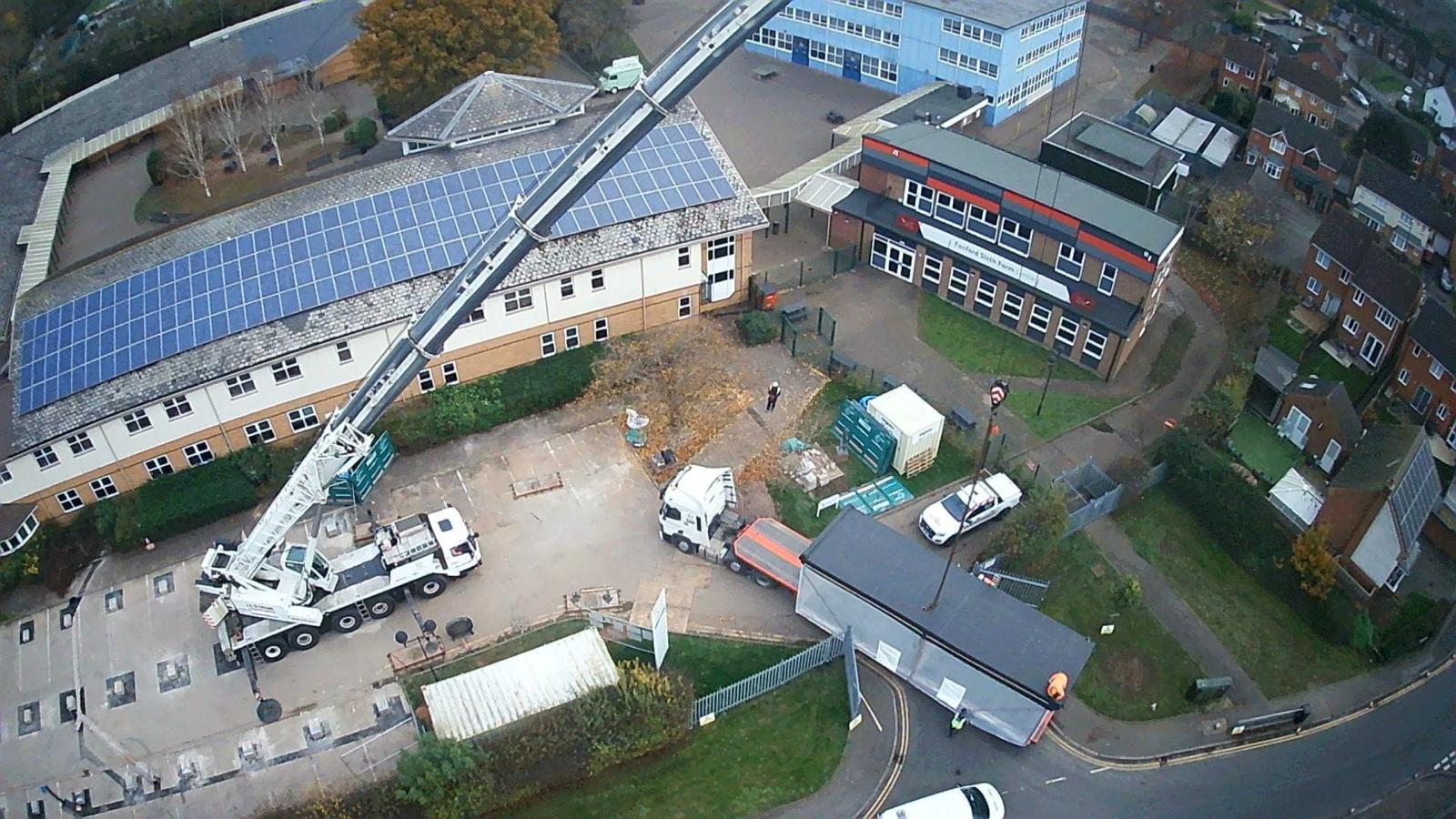Offsite construction explained: Benefits, principles, and applications
3 min read | Published July 30th 2025 | Updated October 7th 2025 | James Osborne
Our latest guide explores what modular construction is, its applications, and how it could benefit your business.

Are you considering offsite construction for your next project, but unsure if it’s right for you? We’re taking a look at what modular construction entails, the benefits of utilising it, and whether you should use it in your next building project.
What is offsite construction?
Offsite construction, also known as offsite manufacturing or modular construction, is a method where building components are designed and manufactured away from the final building site, usually within a factory environment.
It falls under the umbrella of modern methods of construction (MMC), and is growing in popularity, as demand for education, health, and sports infrastructure increases, with offsite construction offering a faster, more streamlined approach than its traditional counterpart.
What are the principles of offsite construction?
Offsite construction is built on ensuring efficiency and high-quality, taking key principles into account including:
What are the benefits of offsite construction?
There are several benefits of offsite construction, including:
Should I choose offsite construction for my next project?
If you’re looking to fast-track your construction process, and build durable, modern infrastructure, fit for purpose in the 21st century, you should opt for offsite manufacturing.
Modular construction can be used across a wide variety of applications, whether you’re looking to construct a multi-storey school building complete with science labs, or a specialised healthcare building containing A&E wards and rest areas.
At Thurston Group, we have experience working with a wide variety of industries, ranging from the healthcare and education sectors, through to sports and leisure, residential, and commercial.
If you’d like to see how offsite construction could work for your next project, get in touch with our expert team, and we’ll discuss how we can create a design that fits your needs.
Read our Other Recent News
FAQs – Cabins
Covering the most frequently asked questions about the cabins and relocatable building products offered at Thurston Group.
3 min read | Matt Goff
The key building and fire safety regulations we’re meeting and exceeding in 2025
To help you stay in the know of the current requirements for builders and offsite manufacturers, we’ve prepared a handy guide covering what the key UK building and fire safety regulations are heading into 2025.
3 min read | Marc Johnson